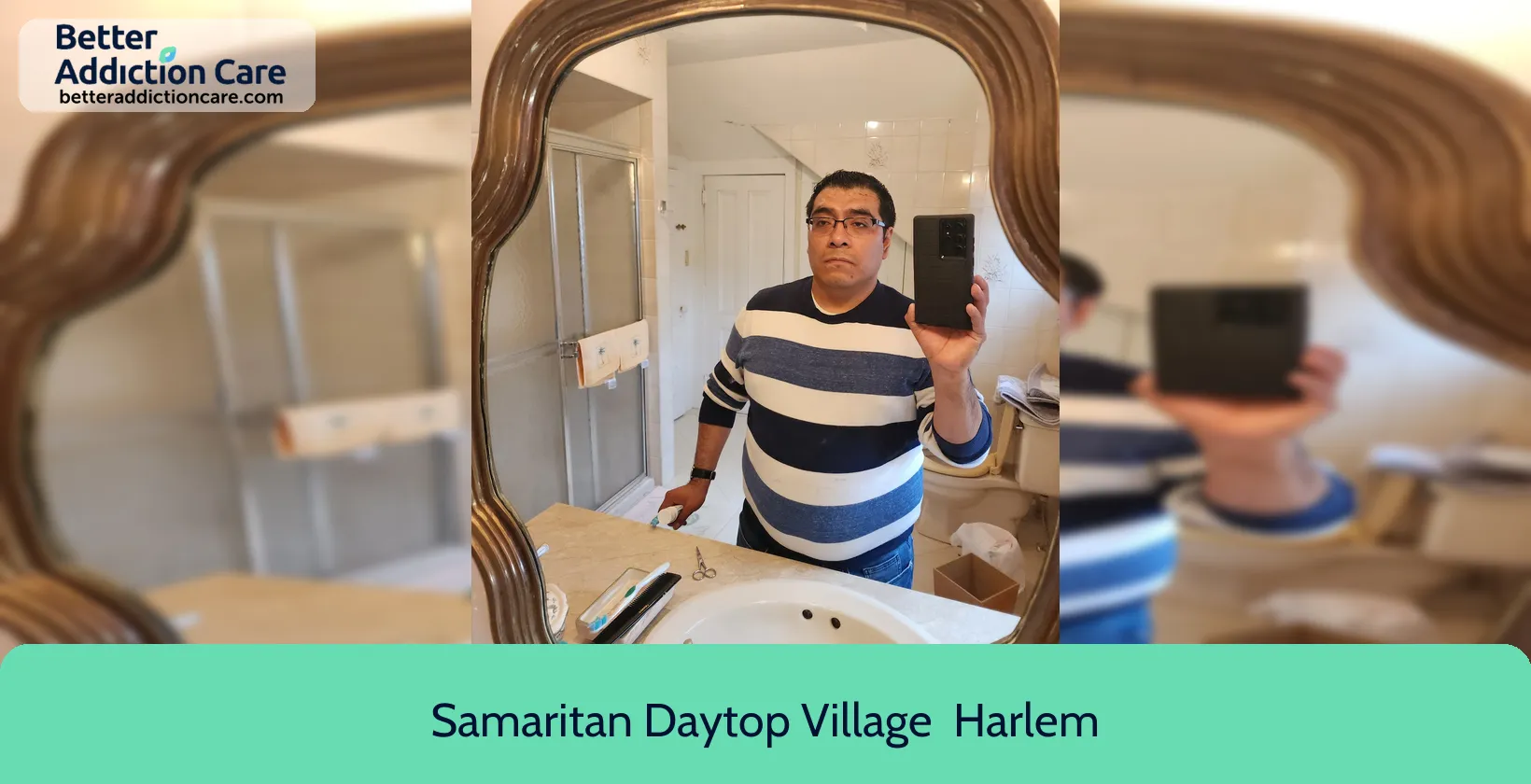Samaritan Daytop Village - Harlem Outpatient 1
Overview
Samaritan Daytop Village - Harlem Outpatient 1 is a substance abuse treatment center for people seeking treatment near New York County. As part of their treatment modalities for recovery, Samaritan Daytop Village - Harlem Outpatient 1 provides smoking/vaping/tobacco cessation counseling, treatment for gambling disorder, and group counseling during treatment. Samaritan Daytop Village - Harlem Outpatient 1 is located in New York City, New York, accepting cash or self-payment for treatment.
Samaritan Daytop Village - Harlem Outpatient 1 at a Glance
Payment Options
- Cash or self-payment
- Medicaid
- Medicare
- State-financed health insurance plan other than Medicaid
- Private health insurance
Assessments
- Screening for tobacco use
- Comprehensive mental health assessment
- Comprehensive substance use assessment
- Interim services for clients
- Outreach to persons in the community
Age Groups
- Seniors or older adults
- Adolescents
- Young adults
Ancillary Services
- Case management service
- Integrated primary care services
- Suicide prevention services
- Specially designed program for DUI/DWI clients
- Child care for client's children
Highlights About Samaritan Daytop Village - Harlem Outpatient 1
7.41/10
With an overall rating of 7.41/10, this facility has the following balanced range of services. Drug Rehab and Detox: 8.77/10, Alcohol Rehabilitation: 8.00/10, Treatment Options: 6.85/10, Insurance and Payments: 6.00/10.-
Drug Rehab and Detox 8.77
-
Alcohol Rehabilitation 8.00
-
Treatment Options 6.85
-
Insurance and Payments 6.00
Treatment At Samaritan Daytop Village - Harlem Outpatient 1
Treatment Conditions
- Alcoholism
- Mental health treatment
- Substance use treatment
- Co-occurring Disorders
Care Levels
- Outpatient
- Outpatient detoxification
- Outpatient methadone/buprenorphine or naltrexone treatment
- Intensive outpatient treatment
- Regular outpatient treatment
Treatment Modalities
- Smoking/vaping/tobacco cessation counseling
- Treatment for gambling disorder
- Group counseling
- Family counseling
- Marital/couples counseling
Ancillary Services
Additional Services
- Pharmacotherapies administered during treatment
- Mentoring/peer support
- Breathalyzer or blood alcohol testing
Special Programs
- Clients with co-occurring mental and substance use disorders
- Veterans
- Active duty military
- Members of military families
- Criminal justice (other than DUI/DWI)/Forensic clients
Get Help Now
Common Questions About Samaritan Daytop Village - Harlem Outpatient 1
Contact Information
Other Facilities in New York City

6.65

7.08

6.71

7.43

7.54

7.08

7.20

6.65
DISCLAIMER: The facility name, logo and brand are the property and registered trademarks of Center for Hearing and Communications, and are being used for identification and informational purposes only. Use of these names, logos and brands shall not imply endorsement. BetterAddictionCare.com is not affiliated with or sponsored by Center for Hearing and Communications.

